Quality control
What we do: the latest on propagation
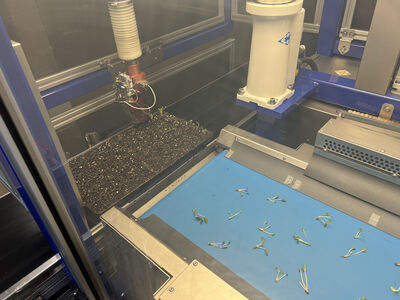
Perhaps you also wonder from time to time what exactly the people at Lubera Edibles do every day. Do they do anything with in vitro propagation? But do they also sow seeds, take cuttings and wood cuttings? The short answer is yes, but...
In vitro propagation is still the main tool for propagating high-quality young plants. Why and what exactly we do will be explained below.
Read moreLubera breeds potatoes – the most important questions and answers
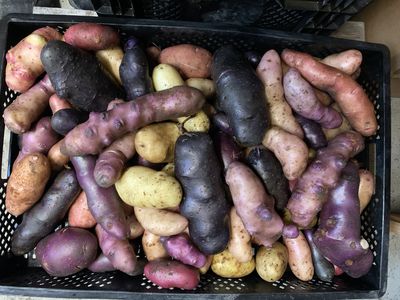
With the expansion of the range of young plants from Lubera Edibles to include vegetables, Lubera also started breeding potatoes a few years ago. How does a simple tree nursery now come up with the idea of breeding potatoes? You are right to ask this question and we will answer the most important questions about our potato breeding project in the following FAQ.
Read moreQuality assurance when propagating young plants – assuring that what has gone in also comes out...

This is true to the motto: "What goes in must come out!" We check the plant authenticity and fruit quality of all larger batches of young plants on a random basis. For this purpose, six randomly chosen young plants from selected young plant batches are potted, cultivated and brought to fruiting. This important “final control” is only one part of our quality assurance.
Read moreIn Vitro Establishment of Raspberries for Sterile Micropropagation
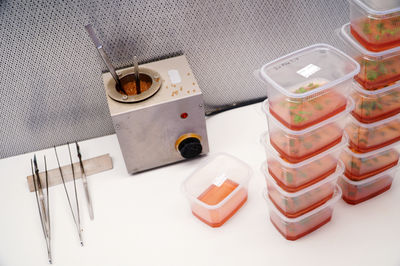
In order to produce a high number of genetically identical, pathogen-free raspberry plants in a short time, selected clones of desired varieties are micropropagated in our laboratory under sterile and controlled conditions.
Read moreOur procedure for establishing novelties

For the successful establishment of new plant species in our laboratory, various parameters have to be worked out: suitable starting material, a disinfectant with appropriate concentration and incubation time, a nutrient solution for good plant quality as well as a cutting technique and cultivation methods.
Read moreWhy buy strawberry young plants from Lubera Edibles?
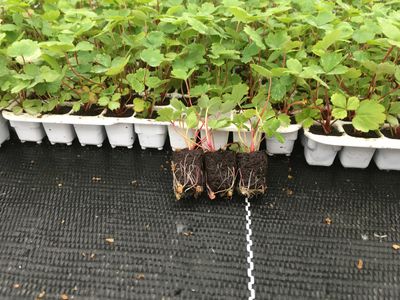
Lubera Edibles is the clear European market leader for soft fruit young plants for the home garden market. We and our parent company Robert Mayer have achieved this position by combining access to high-quality varieties and assortments with a standardised, easy-to-use and well-plannable young plant. We are now systematically striving to do exactly the same with strawberries: thanks to our young plants and varieties, the production of strawberry plants should become simpler and easier to plan...
Read moreEstablishment of rhubarb for sterile micropropagation
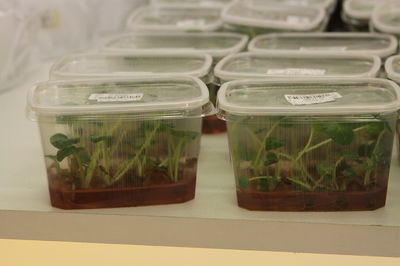
In order to be able to produce a large amount of qualitatively uniform young rhubarb plants in a short period of time regardless of weather conditions, the plants are micropropagated under controlled laboratory conditions in a sterile environment. Controlled laboratory conditions refer to abiotic factors such as light intensity, light quality, day length, temperature and humidity. Micropropagation is suitable for the mass production of genetically identical pathogen-free plants from selected...
Read moreFrom Plant Breeding To Mass Propagation Of Young Plants
Frederik Vollert from Lubera Edibles explains all about the advantages of mass propagation, why they do this and how this works for the Lubera Edibles Range.
'Lubera Edibles' is the young plant division of Lubera, it provides a large selection of delicious fruit varieties to growers. The companies of Robert Mayer and Lubera have joined forces to develop the new plants at Lubera which are then coordinated with the product development and in-vitro propagation at Mayer.
Read more
Rhubarb breeding – these are our goals!
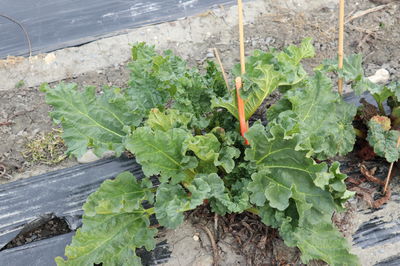
Is there still an active or bigger rhubarb breeding programme in Europe? Do you know one? We at Lubera took on this wrongly neglected vegetable/fruit species a few years ago. In a first step, we tested a number of varieties and then finally produced crosses that are now being tested and selected.
Read moreMicropropagated rhubarb young plants – here are the advantages and differences
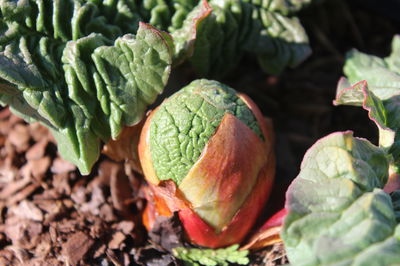
The demand for rhubarb young plants has risen steadily in recent years. Obviously, the demand for this vegetable plant, which is easy to cultivate and durable, exceeds the supply of conventionally propagated young plants (rhizome parts). We are regularly sold out of rhubarb young plants, so we advise potential customers to inquire about rhubarb young plants for the following spring already this spring or early summer. With this approach, you can not only be sure that you will receive the desired...
Read more